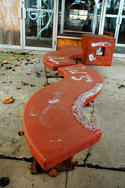For a decade now U.S. city planners have obsessively pursued college graduates, adopting policies to make their cities more like dense hot spots such as New York, to which the "brains" allegedly flock.
But in the past 10 years "hip and cool" places like New York have suffered high levels of domestic outmigration. Some boosters rationalize this by saying the U.S. is undergoing a "bipolar migration"--an argument recently laid out by Derek Thompson in The Atlantic. read more »





















